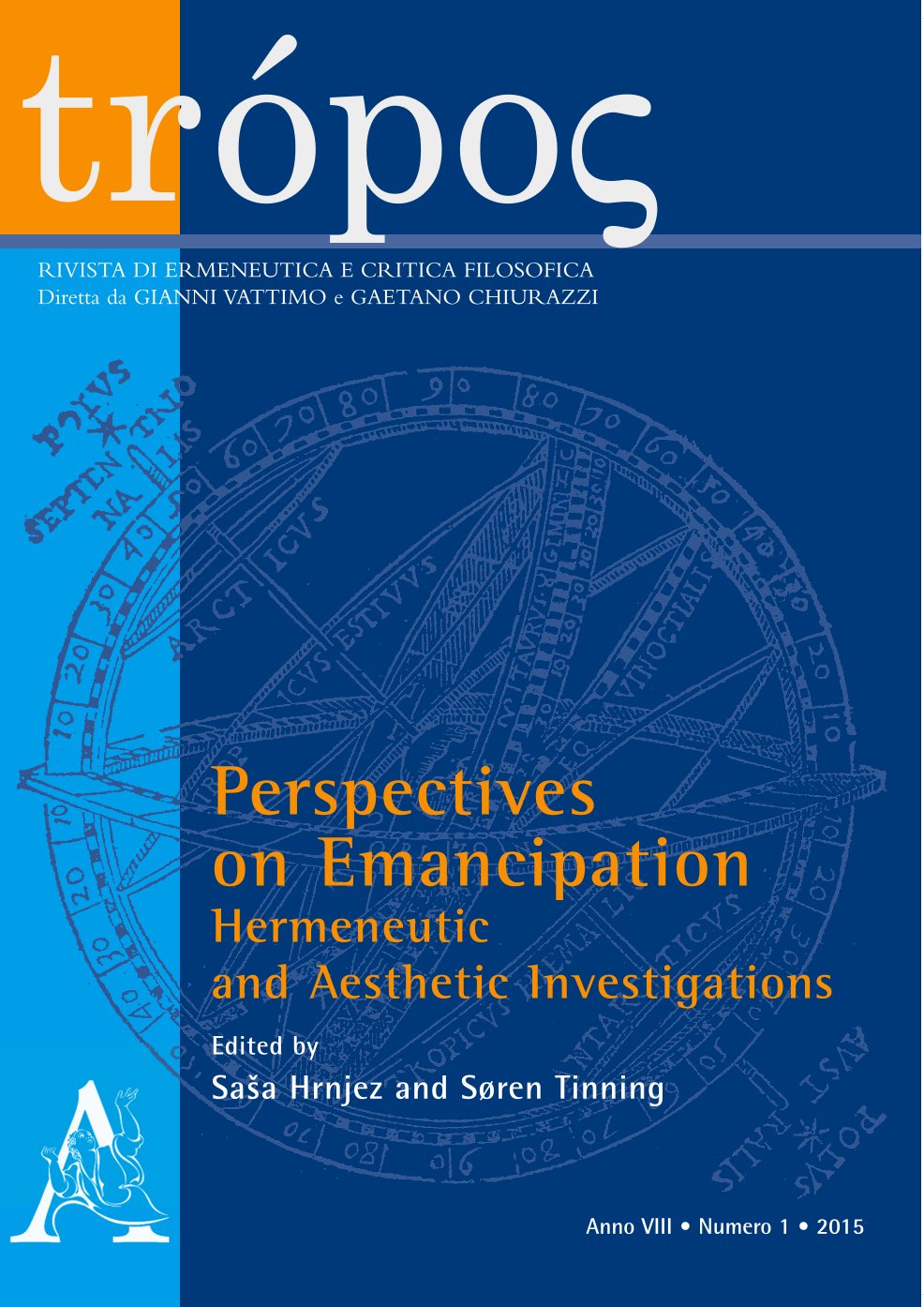A Spectacle of Disappearance
On the Aesthetics and Anthropology of Emancipation
DOI:
https://doi.org/10.13135/2036-542X/7960Keywords:
Philosophical Anthropology, Tunisian Revolution, Emancipation, Existential Anthropology, ResponsivenessAbstract
The paper examines the phenomenon of emancipation, not in terms of changes in personal status and rights, not in terms of changes in social structures and structures of power, but in terms of the anthropological metaphysics found at the core of the emancipatory effort. Having first traced this matter in the history of the concept of emancipation and secondly explored it phenomenologically in the Tunisian Revolution, the paper concludes by pointing to a fundamental difference between the traditional notions of emancipation and its recent manifestation in Tunisia; a difference, namely, between the human being as possessing and producing, on the one hand, and, on the other hand, as a primarily responsive being. This being–responsive at the same time sheds new light on the concept of freedom and how the experience of freedom and of being human guides the project of emancipation.


